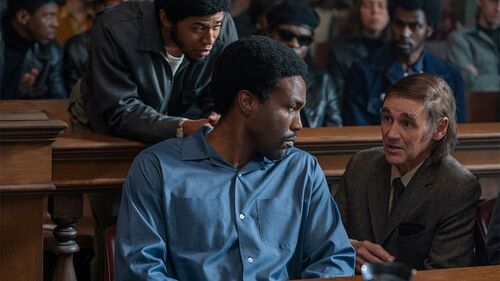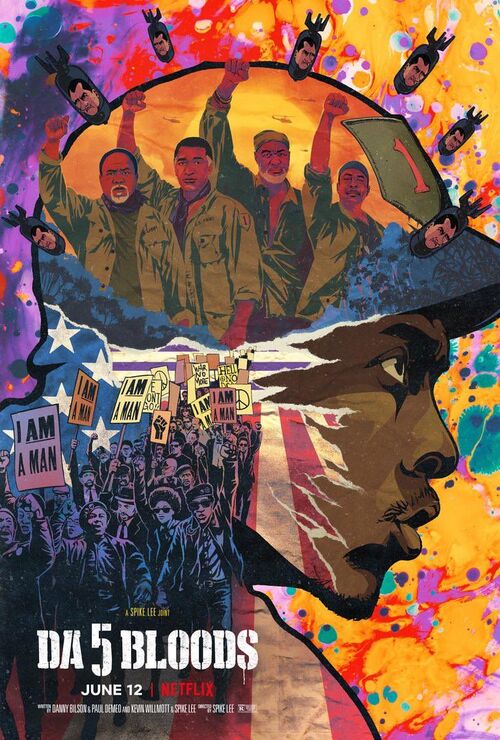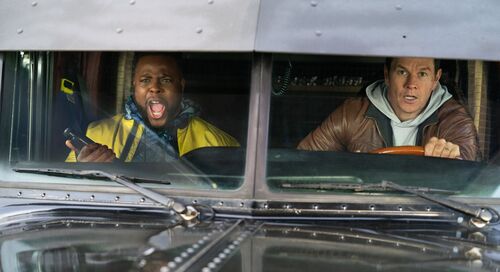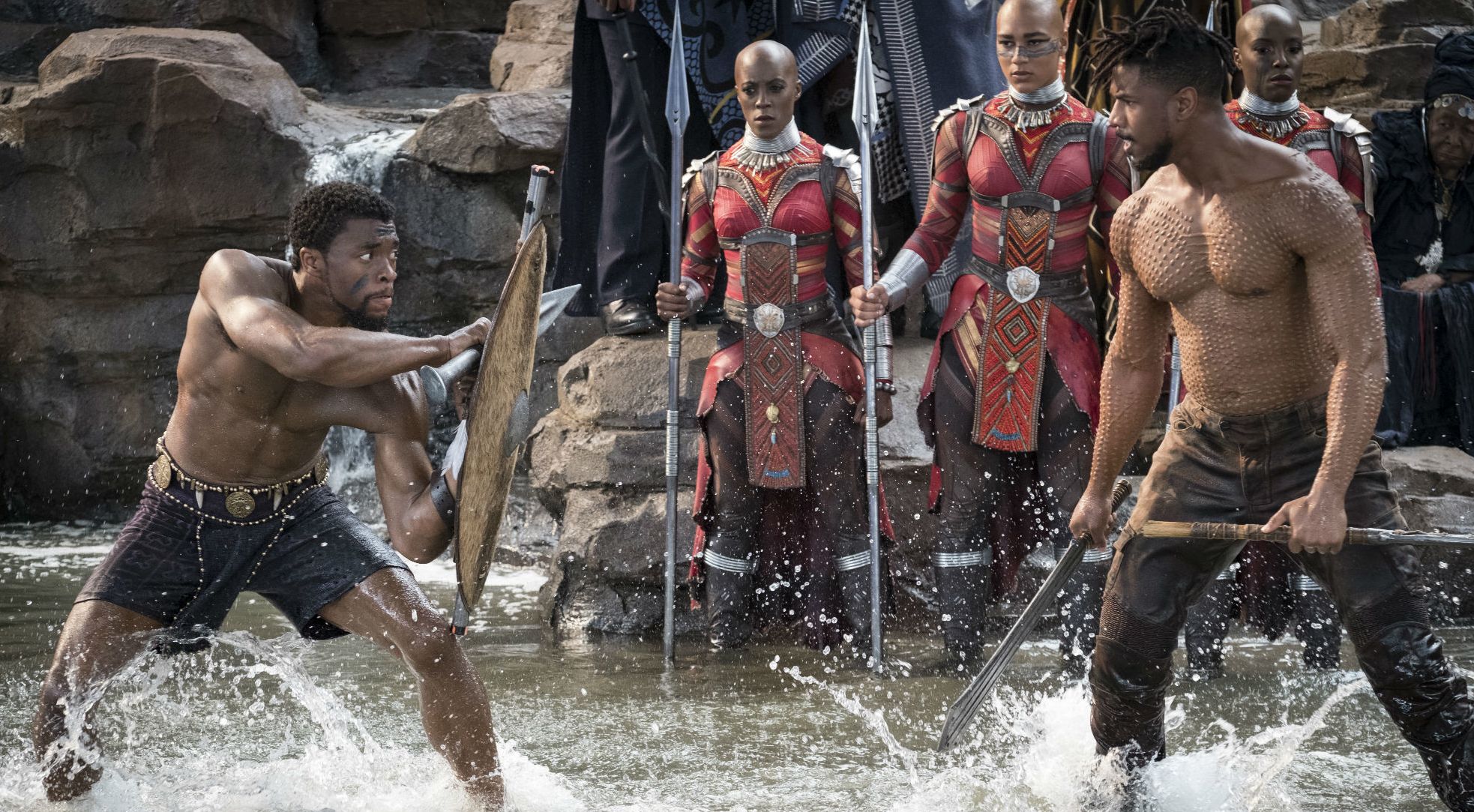
'Black Panther' review
 My biggest fear going into ‘Black Panther’ was that director Ryan Coogler would serve up a righteous narrative fuelled by Fela’s ‘Water No Get Enemy’. A story riding milking the idea of the untouched African country, untainted by European occupiers and firmly in control of its destiny. Conceived by Stan Lee and Jack Kirby in 1966, the cynic in me regards Blank Panther and his kingdom Wakanda as a mere utopia for the white gaze and an antithesis of the distressing dysfunction of the continent. This sentiment informs this paragraph, which I penned weeks before I actually saw the film.
My biggest fear going into ‘Black Panther’ was that director Ryan Coogler would serve up a righteous narrative fuelled by Fela’s ‘Water No Get Enemy’. A story riding milking the idea of the untouched African country, untainted by European occupiers and firmly in control of its destiny. Conceived by Stan Lee and Jack Kirby in 1966, the cynic in me regards Blank Panther and his kingdom Wakanda as a mere utopia for the white gaze and an antithesis of the distressing dysfunction of the continent. This sentiment informs this paragraph, which I penned weeks before I actually saw the film.
By now we know these fears were unfounded, stemming from a place of mere drivel and informed by the exhausting hype. I don’t know if Coogler considered this revisionist motif for 'Black Panther'. His past brilliance had me fearing he may fly too close to the wrong sun, leading me to question if a guy from Oakland should be dabbling in a construct that would come off as an innate mockery of a continent that has done little by way of actual soul searching in contemporary cinema. I’ve already shamed myself for thinking this way given my defence of Katheryn Bigelow in the wake of the backlash that met her helming of ‘Detroit’. So as much I hate to admit this, for what is ostensibly a piece of modern day exploitation cinema, I had an unreal level of investment in 'Black Panther'.
Coogler’s actual approach to ‘Black Panther’ was surprising in its thoughtfulness and authentic perspective, albeit restrained by the vehicle in which he explores his ideas. The crux of the film lies not in the arc of the plethora of African characters but the Black American character brought to life with such ferocity by Michael B. Jordan. Jordan, as Erik 'Kilmonger' Stevens, confronts us with questions on how Africans engage with people of African descent and vice versa. Both sides are oppressed, one by a multifaceted system constantly evolving to keep them under jackboots and the other by a virus hidden in plain sight that erodes their core. A sense of urgency seems to embody the struggle of the Black American and manifests in a righteous anger when encountered with the seeming apathy in Africa, at least in Coogler’s story.
There's such immense depth to Killmonger that taking time to outline the plot seems like a waste. He is the story, a projection of our director’s frustrations and a signal that the idea of Wakanda is ostensibly more important to Black Americans and Africans. It is their utopia, albeit a utopia they have to take by force because they will not be regarded as wholesome by their kin – “lost”, as someone puts it. Killmonger is in a state of angst brought on by a sense of abandonment and betrayal. We are in no doubt who is at fault but what is done cannot be undone. Killmonger leaves us on a beautiful and tragic note. I wished the film leaned more towards the tragic. The pathos I desired is sometimes drowned out by the beautiful spectacle. The moments that count are, however, seared into our soul like the most impactful of cinema is meant to.
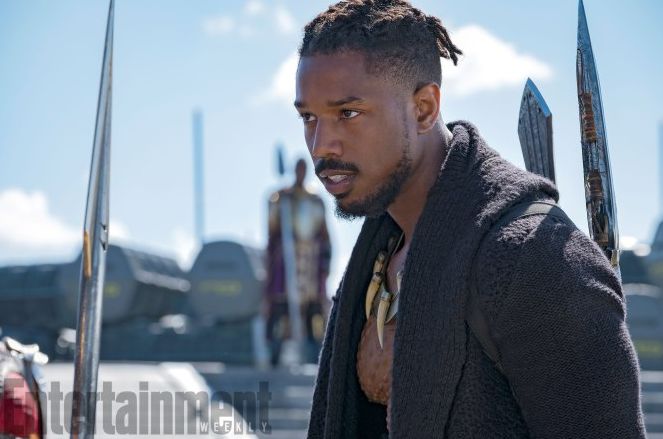
Heath Ledger's turn as The Joker in 'The Dark Knight' sits alone atop the mountain of comic book movie villains (the argument for the broader category can be made another time.) Jordan’s work as Killmonger is a close second. With an imposing persona and unquestionable viciousness, that he elicits so much sympathy is a marvel. In truth, to call him a villain is to misconstrue the character. He is much closer to a Frank Castle - a man simply moulded by a broken world.
Killmonger, unlike the film’s protagonist, T’Challa (Chadwick Boseman), the Black Panther himself, is seeking a solution. The dynamic between the two is ultimately a dissection of the conscience of Wakanda and the conflict at the centre of 'Black Panther' is basic. In line with past traditions, T’Challa wants to maintain Wakanda’s façade as just another poor third world sub-Saharan African country. Wakanda’s advanced technology and priceless vibranium are to remain in service of just its people. Killmonger, having been scarred by oppression worldwide, wants to use Wakanda’s technology to level up resistance cells worldwide and spark an uprising. Killmonger aligns with Marxist ideas heralded in Classic African cinema. His ethos is firmly in Ousmane Sembene’s deceptively complex wheelhouse, much like the way Coogler directs Jordan – forceful, decisive and uncompromising.Wakanda’s paranoia and apprehensiveness towards any form of outside influence is also firmly in Sembene’s playbook. It would be interesting to find out how much of an influence classic African cinema was on Coogler. That’s a more stimulating exercise for African viewers than cheering at strips of kente that complement a kaftan or the sight Adinkra adorned fabrics.
Aside from channelling Sembene’s resistance spirit, the Afrofuturistic aesthetic and the meshing of Wakanda’s advanced tech and nostalgia for tradition draws on the iconic symbolism of the oxen skull motorbike in Djibril Diop Mambety’s ‘Touki Bouki’. The film's venture into the surreal, via a certain ritual for Wakanda kings, evokes the spiritual communing with the gods in 'Emitai', where characters are stripped bare and their central truths revealed. I want to give Coogler and Marvel the benefit of the doubt and not call the compendium of African culture mere appropriation. The level of detail and care make this coming together of vibrant sounds and rich colour more of a pleasing homage. The high-rise Sudano-Sahelian architecture that decorates the Wakandan skyline, the tactile Masai Shuka that spawns shields, striking bodily ornaments like Ethiopian-style lip discs and so on. Then there’s the heavily percussive beats and sporadic Afropop tunes that spice up the score.
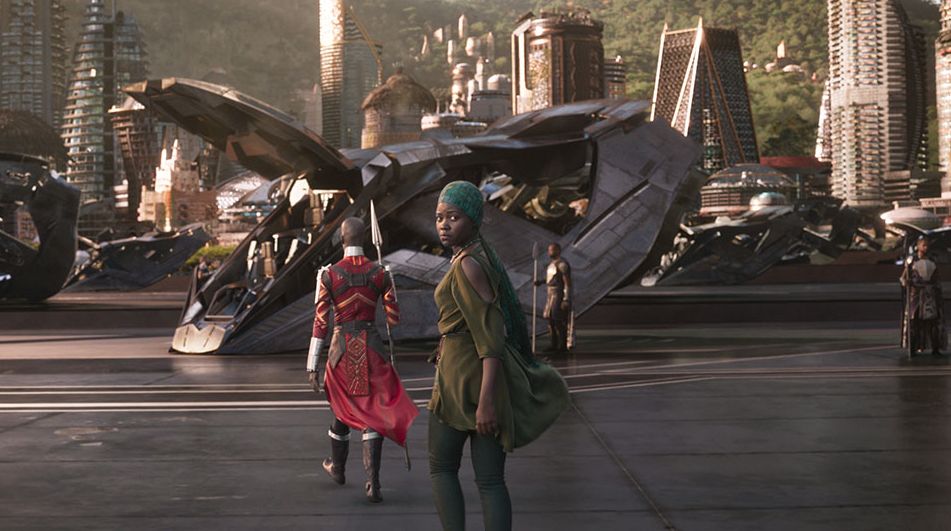
The ensemble cast is great and the script somehow finds time to flesh out all of them. The ageless Angela Basset and her glorious biceps, Forest Whitaker, the quite hilarious Winston Duke, Sterling K. Brown aided by some teardrops, Daniel Kaluuya’s permanent disposition of cynicism and the Bantu knot wearing Lupita N’yongo. Special mention has to go to Andy Serkis, who has so much morbid fun with Ullysus Klaue, making me wonder if we should just make him the next joker. Then there’s Danai Gurira as Okoye, general of the extremely skilled all-female guard, the Dora Milage. She is a mainstay in all of the film’s best action, whilst also exuding depth in the way she has to navigate between heart and duty. Shuri (Letitia Wright), looking like a ditzy 14-year-old school girl the first time we see her, owns her every scene with her bundles of wit, serving as the eager quartermaster to our heroes with well-imagined vibranium based tech.
T’Challa resembles a hero we’ve seen time and time again, wrestling the burden of legacy. Does he toe the line laid down by the past or usher his nation into unchartered territory? That’s the key question for T’Challa as he comes of age in his own way. Beyond this, you can feel the MCU strings being pulled, preparing us for a world where the Black Panther is the world’s new Iron Man but we’ll probably get into all that in later films. Despite dominating the screen time, T'Challa seems side-lined, be it in the more dramatic moments, by the likes of Killmonger, or during the action, by Okoye. The film is better for this, much like the passiveness of Batman was great for 'The Dark Knight', as Boseman manages to exude a subtle charisma that sets him apart from most MCU heroes.
By the end of 'Black Panther', I think one of the most important things Coogler does is strip Wakanda of the utopia status some assign to it. Wakanda is like any other country, shrouded in grey with a foundation of deceit and violence, marred by infighting, bigotry, ethnic divides and power struggles. Wakanda, like the rest of the world, has to deal with growing pains and, like the rest of the world, needs hope.
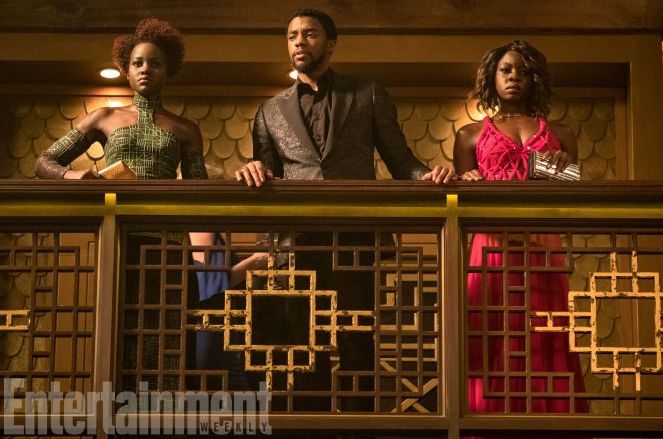
Coogler is telling a very personal story and at times, it feels wasted on a narrative with roots in a comic book. I would like to see the idea of Killmonger play out in the real world, where the angle isn’t to get weapons and tech to start a global rebellion because, spoiler alert, no real African country has Wakanda’s limitless potential. Unlike the way the gritty world of Batman lends itself to a malleable interpretation by Chris Nolan in 'The Dark Knight', the constraints of 'Black Panther' canon keep Coogler from exceeding expectations. No matter how great the action gets, we know it will be weighed down by superfluous CGI and the tone never elevates to the levels of tragedy needed to truly immerse.
Coogler will definitely get to flex his auteur muscles and fully realise these ideas again, God willing. But he has delivered a blockbuster like no other: a wondrous novelty visually, politically charged and imbued with a tantalising Afrocentric flair.
-
